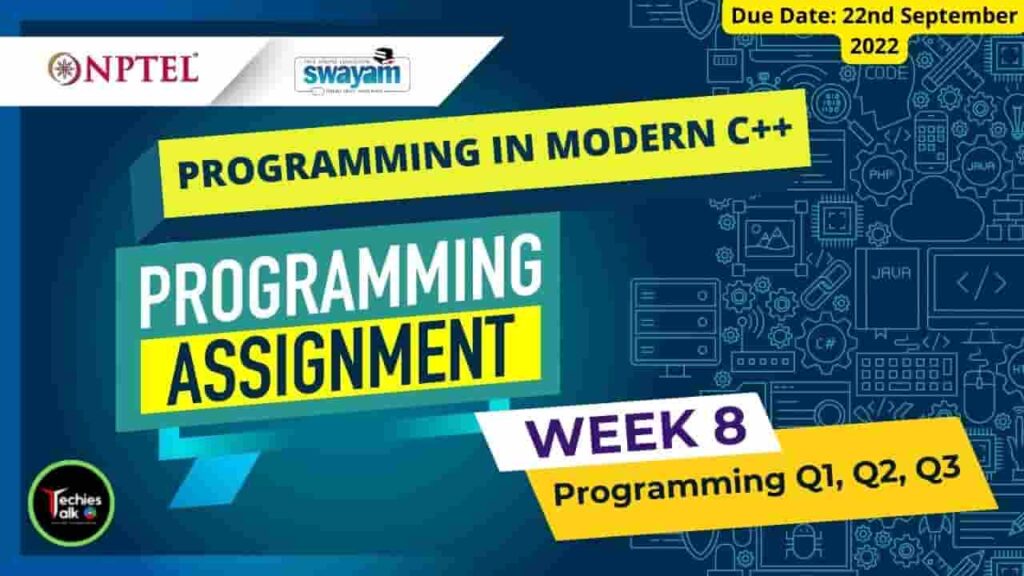
There has been a continual debate on which programming language/s to learn, to use. As the latest TIOBE Programming Community Index for August 2021 indicates – C (13%), Python (12%), C++ (7%), Java (10%), and C#(5%) together control nearly half the programming activities worldwide. Further, C Programming Language Family (C, C++, C#, Objective C etc.) dominate more than 25% of activities. Hence, learning C++ is important as one learns about the entire family, about Object-Oriented Programming and gets a solid foundation to also migrate to Java and Python as needed. C++ is the mother of most general purpose of languages. It is multi-paradigm encompassing procedural, object-oriented, generic, and even functional programming. C++ has primarily been the systems language till C++03 which punches efficiency of the code with the efficacy of OOP. Then, why should I learn it if my primary focus is on applications? This is where the recent updates of C++, namely, C++11 and several later offer excellent depths and flexibility for C++ that no language can match. These extensions attempt to alleviate some of the long-standing shortcomings for C++ including porous resource management, error-prone pointer handling, expression semantics, and better readability. The present course builds up on the knowledge of C programming and basic data structure (array, list, stack, queue etc.) to create a strong familiarity with C++98 / C++03. Besides the constructs, syntax and semantics of C++ (over C), we also focus on various idioms of C++ and attempt to go to depth with every C++ feature justifying and illustrating them with several examples and assignment problems. On the way, we illustrate various OOP concepts. The course also covers important advances in C++ 11 and later released features..
Programming In Modern C++ Week 8 Programming Assignment.
INTENDED AUDIENCE : Any interested audience
PREREQUISITES : 10th standard/high school
INDUSTRY SUPPORT : Programming in C++ is so fundamental that all companies dealing with systems as well as application development (including web, IoT, embedded systems) have a need for the same. These include – Microsoft, Samsung, Xerox, Yahoo, Oracle, Google, IBM, TCS, Infosys, Amazon, Flipkart, etc. This course would help industry developers to be up-to-date with the advances in C++ so that they can remain at the state-of-the-art.
Course Layout
Programming Assignment Q1
#include<iostream>
#include<vector>
using namespace std;
template<class T> //LINE-1
class Filter{
T ub, lb;
public:
Filter(T _lb = 0, T _ub = 0) : ub(_ub), lb(_lb) { }
vector<T> extract(vector<T> tVec);
};
template<class T> vector<T> Filter<T> :: extract(vector<T> tVec){ //LINE-2
vector<T> rVec;
for(int i = 0; i < tVec.size(); i++){
if(tVec[i] <= ub && tVec[i] >= lb)
rVec.push_back(tVec[i]);
}
return rVec;
}
int main(){
int i1, i2;
char d1, d2;
cin >> i1 >> i2 >> d1 >> d2;
Filter<int> flt1(i1, i2);
Filter<char> flt2(d1, d2);
int arr1[] = {30, 10, 50, 60, 80, 20, 40, 70, 90};
char arr2[] = {'a', 'n', 'i', 'm', 'l', 's'};
vector<int> iVec(arr1, arr1 + 9);
vector<char> cVec(arr2, arr2 + 6);
vector<int> rVec1 = flt1.extract(iVec);
vector<char> rVec2 = flt2.extract(cVec);
for(int i = 0; i < rVec1.size(); i++)
cout << rVec1[i] << ", ";
cout << endl;
for(int i = 0; i < rVec2.size(); i++)
cout << rVec2[i] << ", ";
return 0;
}
Programming Assignment Q2
#include<iostream>
#include<exception>
#include<vector>
#include<cstdlib>
using namespace std;
class InvalidAccess : public exception { // LINE-1
public:
virtual const char* what() const throw() {
const char* str = "invalid access"; //LINE-2
}
};
template<class T>
class ItemList{
int n;
T* items; //LINE-3
public:
ItemList(vector<T> _items) : n(_items.size()),
items((T*)malloc(n * sizeof(int))){
for(int i = 0; i < n; i++){
items[i] = _items[i];
}
}
T operator[](int i){ //LINE-4
if(i >= 0 && i < n){
return items[i];
}
throw InvalidAccess(); //LINE-5
}
};
int main(){
int idx[3];
for(int i = 0; i < 3; i++){
cin >> idx[i];
}
vector<int> iVec;
vector<char> cVec;
for(int i = 0; i < 5; i++){
iVec.push_back((i + 1) * 10);
cVec.push_back(65 + i);
}
ItemList<int> iList(iVec);
ItemList<char> cList(cVec);
for(int i = 0; i < 3; i++){
try{
cout << iList[idx[i]] << ", ";
cout << cList[idx[i]] << endl;
}catch(InvalidAccess e){
cout << e.what() << endl;
}
}
return 0;
}
Programming Assignment Q3
#include <iostream>
#include <algorithm>
#include <string>
#include <vector>
using namespace std;
struct less_mag {
bool operator()(string x, string y){ //LINE-1
return x.length() < y.length(); //LINE-2
}
};
int main(){
vector<string> iVec;
int n;
string na;
cin >> n;
for(int i = 0; i < n; i++){
cin >> na;
iVec.push_back(na);
}
sort(iVec.begin(), iVec.end(), less_mag());
for(int i = 0; i < iVec.size(); i++)
cout << iVec[i] << " ";
return 0;
}